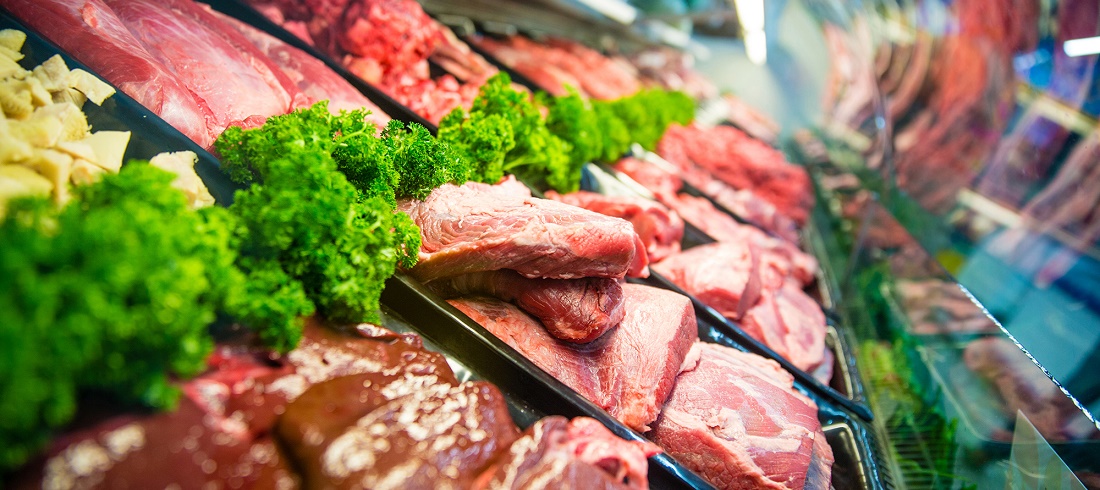
Brazil’s Beef Exports Set to Rise in 2024 and 2025, Conab Reports
Sep, 17, 2024 Posted by Sylvia SchandertWeek 202438
Brazil’s beef production is expected to grow by 7.4% in 2024, reaching 10.2 million tonnes, marking the second-highest figure in history, according to the National Supply Company (Conab). However, in 2025, the sector is anticipated to face a 4.3% decline, falling to 9.8 million tonnes due to a livestock cycle shift, increased female retention, and reduced cattle availability for slaughter.
According to the state agency, slaughter rates rose by 18.7% from January to August 2024 compared to last year. Between 37 million and 38 million head of cattle are expected to be slaughtered this year.
Exports totaled 3 million tonnes in 2023, despite a temporary ban from China due to a mad cow disease incident, and have increased by 28.1% up to August of this year. They are expected to reach 3.6 million tonnes by the end of 2024, a 17.8% increase from last year.
For 2025, Conab forecasts stability after robust growth, with a 2.5% increase in beef exports to 3.7 million tonnes.
Gabriel Rabello, Conab’s Manager of Fibers and Basic Foods, noted that 2025 will begin a reversal in the livestock cycle. “The price of calves has stopped falling and is expected to start rising soon. This causes ranchers to retain females, reducing the availability of animals for slaughter,” he said during an online event presenting the 2024/25 crop outlook.
For the beef supply situation, Conab estimates that availability will increase to 32.7 kg per capita in 2024 but will drop by 8.3% in 2025 to 30 kg per capita.
“This supports the projection of higher prices for fat cattle in the medium and long term, around R$ 240 to R$ 250 per arroba. There are elements indicating that by the end of 2025, we will see an upward trend in fat cattle prices,” Rabello added.
This price increase for cattle and beef consumers could boost the consumption of other animal proteins such as poultry and pork.
Chicken
Conab projects a 1.7% increase in production for the chicken market to 15.2 million tonnes. For 2025, the state agency estimates a 2.1% rise to 15.5 million tonnes.
Chicken exports are expected to increase by 1.9% in 2024 and 2025, reaching 5.1 million tonnes this year and 5.2 million tonnes next year. From January to August, exports decreased by 0.1% compared to the same period in 2023.
“With the increase in beef prices, chicken becomes a viable option,” said Rabello. The expected stability or decrease in corn prices, a key cost component for poultry producers, should support poultry production.
The supply outlook indicates consecutive increases in domestic chicken availability. It is projected to reach 50 kg per capita in 2025, up 1.7% from 49.2 kg per capita in 2024. Day-old chick placements are expected to be 6.9 billion in 2024 and 7.1 billion in 2025.
Rabello said the live chicken price scenario is more stable, with no significant price increases anticipated, particularly due to the beef market and controlled corn and soybean costs.
Pork
For pork, forecasts indicate a 1.3% increase in production in 2024 to 5.37 million tonnes and a 1.8% rise in exports to 1.23 million tonnes. For 2025, Conab’s projection shows a 1.6% increase in pork production to 5.45 million tonnes, with exports growing by 3% to 1.27 million tonnes.
Rabello said that despite reduced Chinese demand for pork, new market openings and increased purchases by Asian markets such as the Philippines and Singapore support the positive export projections.
The supply outlook shows an increase in domestic pork availability, reaching 20.2 kg per capita in 2024 and 20.4 kg per capita in 2025. “It’s a positive outlook for Brazilian consumers to have more access to the product,” said Rabello. The price scenario for producers is also stable, in line with lower input costs such as corn and soybean meal. “This is beneficial for the population’s supply,” he concluded.
Source: Globo Rural
-
Ports and Terminals
Dec, 20, 2022
0
Promising times ahead for soy, corn, sugar exports at the Port of Santos, say gov’t forecasts
-
Ports and Terminals
Apr, 26, 2022
0
Antaq to inspect solid bulk terminals in the Port of Santos
-
Ports and Terminals
Sep, 26, 2019
0
Port of Itajaí and Ponta da Madeira TUP lead ANTAQ’s Environmental Ranking
-
Ores
Dec, 05, 2018
0
Santos handles record amount of cargo in first 10 months of 2018



